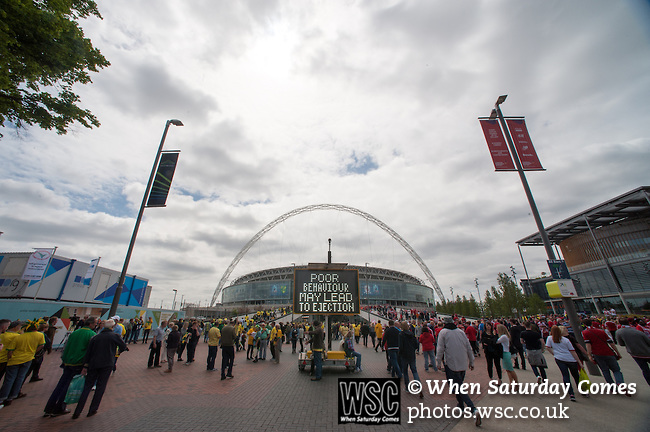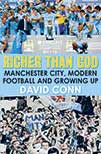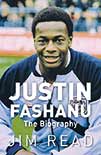
Search: ' equality'
Stories
Last night Iceland’s men beat England to reach the quarter-finals in their first-ever European Championship, yet their women’s team have nearly qualified for their fourth Euros without the same fanfare
28 June ~ When the Icelandic men’s team qualified for Euro 2016, articles were published around the world about it being an unprecedented milestone for a nation of only 330,000. However, this is not the first time Iceland have qualified for a European Championship. In fact, this is the fourth. The national women’s football team have played in the Euros three times – in 1995, 2009 and 2013 – and have almost qualified for Euro 2017. The men’s team are ranked 34th in the world, the women’s team are 20th.
 Manchester City, modern football and growing up
Manchester City, modern football and growing up
by David Conn
Quercus, £16.99
Reviewed by David Stubbs
From WSC 307 September 2012
Guardian contributor David Conn is one of the foremost UK journalists when it comes to football and finance, bringing his legal expertise to bear on the murky and often dubious relationship between the two. In 2008, Manchester City were controversially taken over by Sheikh Mansour bin Zayed of Abu Dhabi, with the club suddenly benefiting from the hundreds of millions he decided to invest in them from afar, despite rarely visiting the Etihad Stadium. The money he has dropped into the game has, many argue, affected it for the worse. David Conn is a Manchester City fan. This book exists within that somewhat awkward triangle.
Richer Than God is not an exposé of dirty, hidden dealings, not least because the Mansour’s takeover is in plain sight. There are no anonymous consortiums or obscure issues of leverage. Nor are there suspicions that the club’s new owner is a chancer, lacking in true financial clout and looking to milk the club or sell off the ground for property development. The Sheikh’s fortunes are too huge for such petty vice.
When Conn puts forward objections to the desirability of a club becoming such a rich man’s plaything, the Sheikh’s representative Khaldoon al-Mubarak “did not so much defend what they were doing as fail to understand the question”, especially with the precedents of Jack Walker and Roman Abramovich already established. What’s the problem?
Conn is further disarmed by the accommodation of the PR-canny new owners. Although he does not get to interview the Sheikh (no one does), there is no attempt to suppress or blank Conn, despite his prominence as an investigative journalist. He’s invited to interview Al-Mubarak, who fields all his questions politely, and to enjoy the lavish hospitality of the “inner sanctum” of the Etihad Stadium.
Conn does not temper his objections, particularly to the social inequality that enabled the Sheikh, and City, to enjoy such largesse. He does, however, find himself concluding that in terms of their provision for the club, their investment not just in players like Carlos Tevez but in its facilities and corporate structure, they are the best owners of the club he has known in his lifetime.
If this sounds disappointing to WSC readers, it should be observed that Richer Than God is an excellent book, which covers a vast range of subject matter, all bolted together with Conn’s typically pertinent grasp of relevant facts and figures. It takes in many things: the often luckless history of Manchester City and the city itself; Conn’s own autobiography as a football fan; the effects of Conservative austerity measures on the city; and, following a terse five-minute interview with ex-chairman Francis Lee, a disillusionment that comes with the knowledge of the chasm between football as a modern-day business and its romantic origins.
Lee taking over City should have been the unifying of these opposites; when he revealed he’d not watched a football game in five years and fired club legends Tony Book and Colin Bell en route to driving the club down two divisions, it turned out otherwise. Although Conn distances himself from some of the more craven gratitude to Mansour, he does identify with a fellow fan, contemplating the club currently: “It isn’t the City I love – but if all this were to happen to anybody, I’m glad it’s happened to us.”
 The biography
The biography
by Jim Read
DB Publishing, £14.99
Reviewed by Al Needham
From WSC 307 September 2012
By all accounts, and even by the standards of the pre-AIDS gay subculture of the early 1980s, Nottingham’s La Chic: Part Two was a hell of a club. According to an article in Notts magazine LeftLion: “On a typical night, you might find Su Pollard whooping it up to the latest American imports, while a regal Noelle Gordon wafted around, flanked by stage-door johnnies. You could even avail yourself of the services of a resident chaplain, after you’d made use of the pitch-black sex room.”
The most shocking aspect of the club, however, was that for over two years, it was patronised by one of the country’s best-known young footballers – and it never crossed anyone’s mind to tell the newspapers about it.
Justin Fashanu’s life would have been a seething melange of contradiction even if he’d had the sexual tastes of George Best. Fashanu was a black child raised in a staunchly white community, a born-again Christian (converted in a Nottingham car showroom) in a country that saw that sort of thing as a bit American and odd, and a teetotaller at a workplace where everyone from the boss down went out and got battered. So discovering that he actually preferred other men to the fiancée he’d brought up from Norwich reads like just another contradiction to add to the pile.
As this meticulously researched book spells out, Fashanu was (and is) impossible to pigeonhole. For starters, like his brother, he wasn’t afraid to put himself about, and there’s a great story of him confronting a group of National Front supporters in a pub and breaking the jaw of one of them.
On the other hand, if you’re looking for a stoic sexual-equality pioneer, he wasn’t your man, displaying an arrogant sense of entitlement that put noses severely out of joint, making up affairs with Julie Goodyear and Tory MP Steven Milligan, and using his sexuality to cash in whenever possible.
Crucially, the author could have laid on accusations of institutionalised homophobia with a trowel, but – while making it clear that things are much better now than then – he also points out that the majority of Fashanu’s peers didn’t give a toss who he was shagging, as long as he was playing well. The book also gets as near to the truth of the circumstances surrounding Fashanu’s rape charge in the United States and subsequent suicide in London as readers are ever likely to get.
After you’ve read this extraordinary story – and you should – you can’t help wondering what a 20-year-old Justin Fashanu would be like today. He wouldn’t be the only non-boozer or born-again Christian in the dressing room, he’d be allowed to be as petulant as he liked, and a Twitter feed, invitations to celebrity game shows and Hello and OK sniffing round his house would sate his need for publicity.
But you can’t shake the feeling that there would still be an agent in his ear putting a monetary value on keeping his mouth shut and his trousers on, and a forest of arms brandishing iPhones greeting him outside NG1, Nottingham’s barn-sized gay club. We like to think that, as a society, we’re ready for the next openly gay footballer, but this book spells out exactly why we’ve been waiting so long since the last one.
 After financial crises, the 2012 season could emerge as an unlikely success story for Peru’s Primera División, says Nick Dorrington
After financial crises, the 2012 season could emerge as an unlikely success story for Peru’s Primera División, says Nick Dorrington
2011 was a terrible year for Peruvian football. The football federation’s flaccid attempts at regulating the financial difficulties suffered by the majority of first division clubs turned the national league into a farce. The death of Alianza Lima supporter Walter Oyarce, who was pushed off a stand by rival fans, highlighted the growing problem of football-related violence. Stricter enforcement was required if 2012 was to offer any improvement.